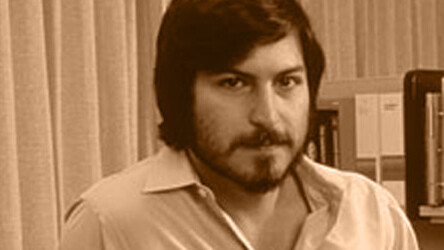
Rickard Falkvinge (@Falkvinge on Twitter) will be speaking at TNW2011 about recurring themes in history. We might think that everything is changing and we are going through unprecedented times but we are wrong. The fight for freedom of information has been going on for ages and Rickard has several, some very amusing, examples to illustrate this.
Bottom line: people in power will use their power to keep their power, even if it goes against the public interest.
I had a chance to chat with Rickard about entrepreneurship, illegal downloads and even got to ask him why he doesn’t think it is a good idea to redirect ThePirateBay.org to Pandora.com.
Boris: First question: Are you a politician, entrepreneur or hacker?
Rick Falkvinge: I don’t think any of the labels exclude any of the other. In fact, I think one needs to be an entrepreneur and a hacker in order to be a successful politician leading society into the next type of economy. That goes not just for being a politician, but for any person helping to catalyze the changes we are undergoing.
Boris: Steve Jobs famously said “Why join the navy if you can be a pirate?”. Do you agree with him? Even if that means you will be a criminal to some people?
Rick Falkvinge: Law is not a matter of what’s right and wrong; it’s a matter of preserving status quo. In disruptive times, law has always been less overlapping with the public perception of right and wrong.
In particular, the law has always been about regulating economies of scarcity. When these scarcities have turned into abundances, as is the case with anything digitizable, law has not kept up. The law has always tried to prevent sharing of scarce resources.
That doesn’t mean it’s wrong. To the contrary, I think many of us regard sharing as a good human deed worthy of karma.
So I’d summarize — yes, my own moral compass is much more important than the letter of the law. Following the law is never an excuse for not taking personal responsibility, just as following orders isn’t.
Boris: I’m sure the record ccompanies don’t agree with the idea that their intelectual property is abundant. It is, but that is not what they want it to be…
Rick Falkvinge: Right, they’d rather have another world. But any business needs to make money given the parameters of society. If they can’t, they don’t get to change the parameters of society. In the case of copyright and patents, it’s not direct wealth as such, but wealth resulting from a monopoly deadweight. Infringing on that monopoly is seen as a good deed by most people under 35. There’s a huge generational gap here, which is only further accentuated by the shift in communications patterns.
Boris: I’m sure it helps that people under 35 have less money to spend so like the thought of getting stuff for free? What should the music industry do if they want to get ahead and out of this negative spiral? What would you advise them?
Rick Falkvinge:“Free” was never part of the equation. I’m paying subscriber number 110 to Pandora out of 48 million, for example. It’s about new moral values that have already been established, that nobody has the right to prevent anybody from sharing culture and knowledge. The copyright monopolies are seen as illegitimate, with the notable exception of the attribution right (the right for a creator to be associated with her work).
My advice to creators would be to push for a situation where record labels get to put their money where their mouth is: they claim to be very valuable in terms of artist development. Now that artists can be in the front line of the money and not needing labels to channel that, I’d love to see the money flow reverse, so that artists start paying labels for services they really need. It would be very interesting to see how much was really needed and necessary when push came to shove.
As for the record labels, they’re not needed anymore as intermediaries. You don’t need a middleman that takes 95% of the cut to move bits from point A to point B. That’s ridiculous.
Boris: I actually enjoy paying for music in iTunes. I like the convenience and the idea that value is exchanged. Am I old-fashioned? Would you advise me to get my music for free at ThePirateBay?
Rick Falkvinge: Well, I’m listening to music on Pandora right now, paying €3 per month for that and an added €2/month for a proxy service that bypasses the stupid US-only border controls. This goes back into the observations of economies of scarcity and abundance.
Whenever a scarcity has turned into an abundance in the past, there has always been a new scarcity of people who can make sense of that abundance. Like electricians when electricity arrived. In this case, it’s people who are able to make sense of the cultural landscape.
Boris: So why don’t you push for a redirect from ThePirateBay.org to Pandora.com?
Rick Falkvinge: That would be very counterintuitive. The Pirate Bay is a place to share any digitized material, or for that matter, any bitpattern. I would not want it to be replaced by nonfree (as in libre) alternatives. Everything has its place. Many up and aspiring artists use The Pirate Bay as their primary distribution; replacing it by something establishment-controlled would deny them the independence of the current incumbent gatekeepers.
Assuming that torrent search engines could be “replaced” in the first place, which, of course, they can’t. Not given the decentralized nature of the net.
Boris: Interesting. What can people expect from your talk at TNW2011?
Rick Falkvinge: The more things change, the more they stay the same. All of this has happened before, and all of this will happen again. Ultimately, what we are seeing right now is a very general rule of humanity: people in power will use their power to keep their power, even if it goes against the public interest. My objective is to connect dots between the present and the past. And, of course, I’m hoping to spread a few laughs as well.
Boris: You worked at Microsoft. Is that where you picked up your healthy disdain for big entities trying to stay in power?
Rick Falkvinge: Hmm, no, I think that’s inherent in the hacker culture. It’s not something I picked up at 30, it’s something I picked up through osmosis when I started coding at age 8 from other tinkerers. Anybody trying to restrict the flow of information because they’ll go out of business otherwise should go out of business as soon as possible.
My experience at Microsoft from the inside was actually a quite positive one, although it’s not the same company today as it was in 2001. (Oh, and just for the record, I didn’t apply to work at Microsoft — I worked for a company that was bought out.)
Boris: Last question: How much illegal music and movies do you own?
Rick Falkvinge: Fortunately, it’s not illegal to have those bitpatterns on your harddrive in any country I know of; only certain means of transmitting them is infringing on a monopoly, never storing them. I haven’t counted how much culture and knowledge is stored locally, but it’s some half-dozen terabytes, which I think is about the norm.
Boris: Is that a politicians way of saying ‘a lot’?
Rick Falkvinge: Some six to eight terabytes is enough for the moment. But I’m always looking out for the next generation of hard drives, as I always have been.
Check out the speaker announcement post, our conference site and my other interviews with Dave Winer, Steve Rubel and Alexander Bard.

Get the TNW newsletter
Get the most important tech news in your inbox each week.




